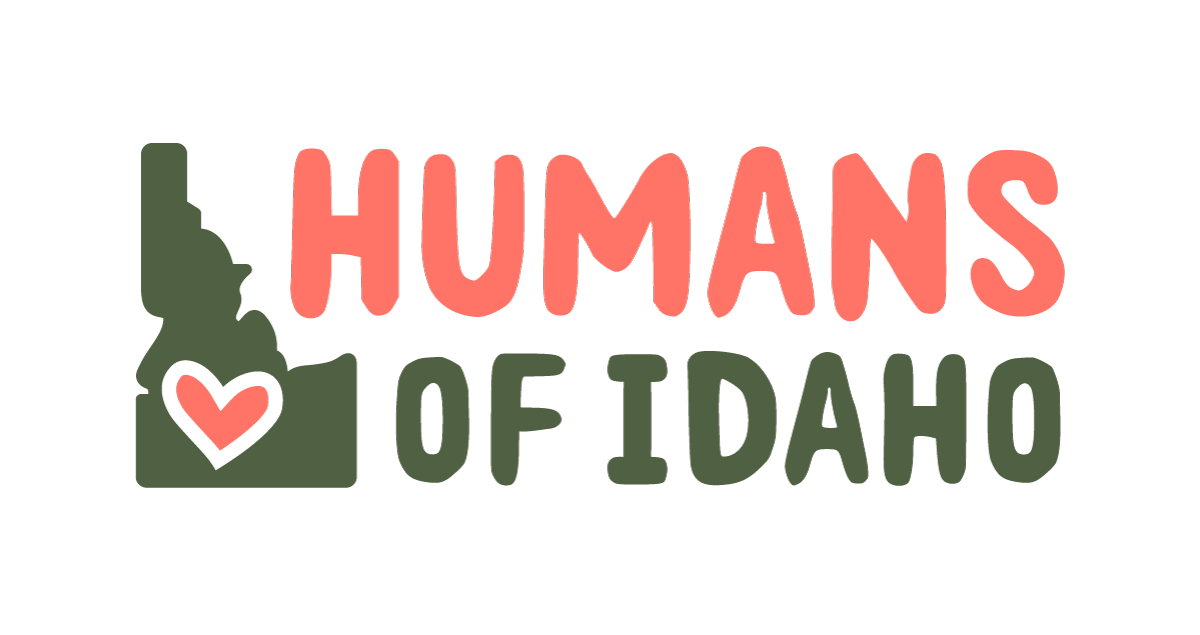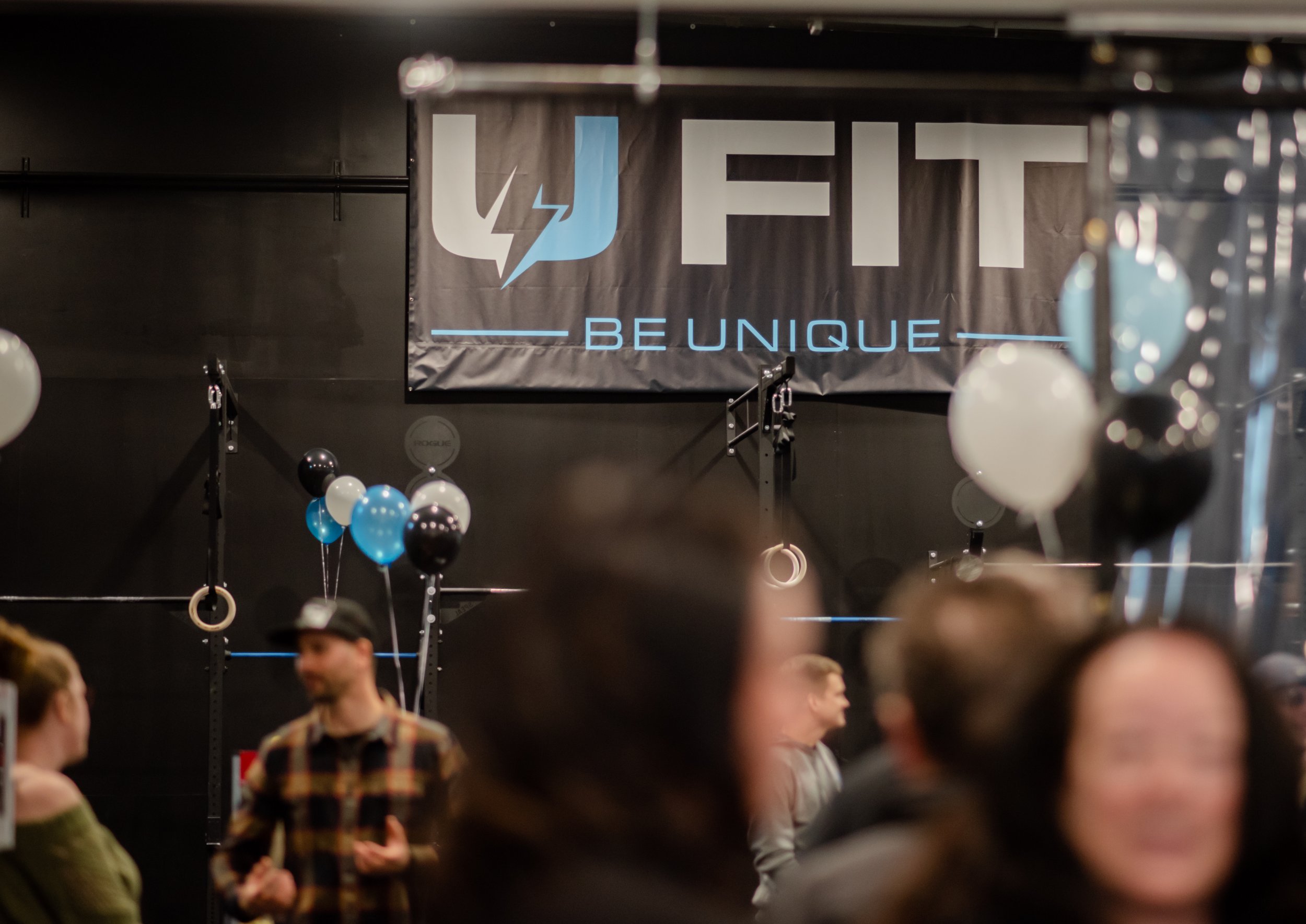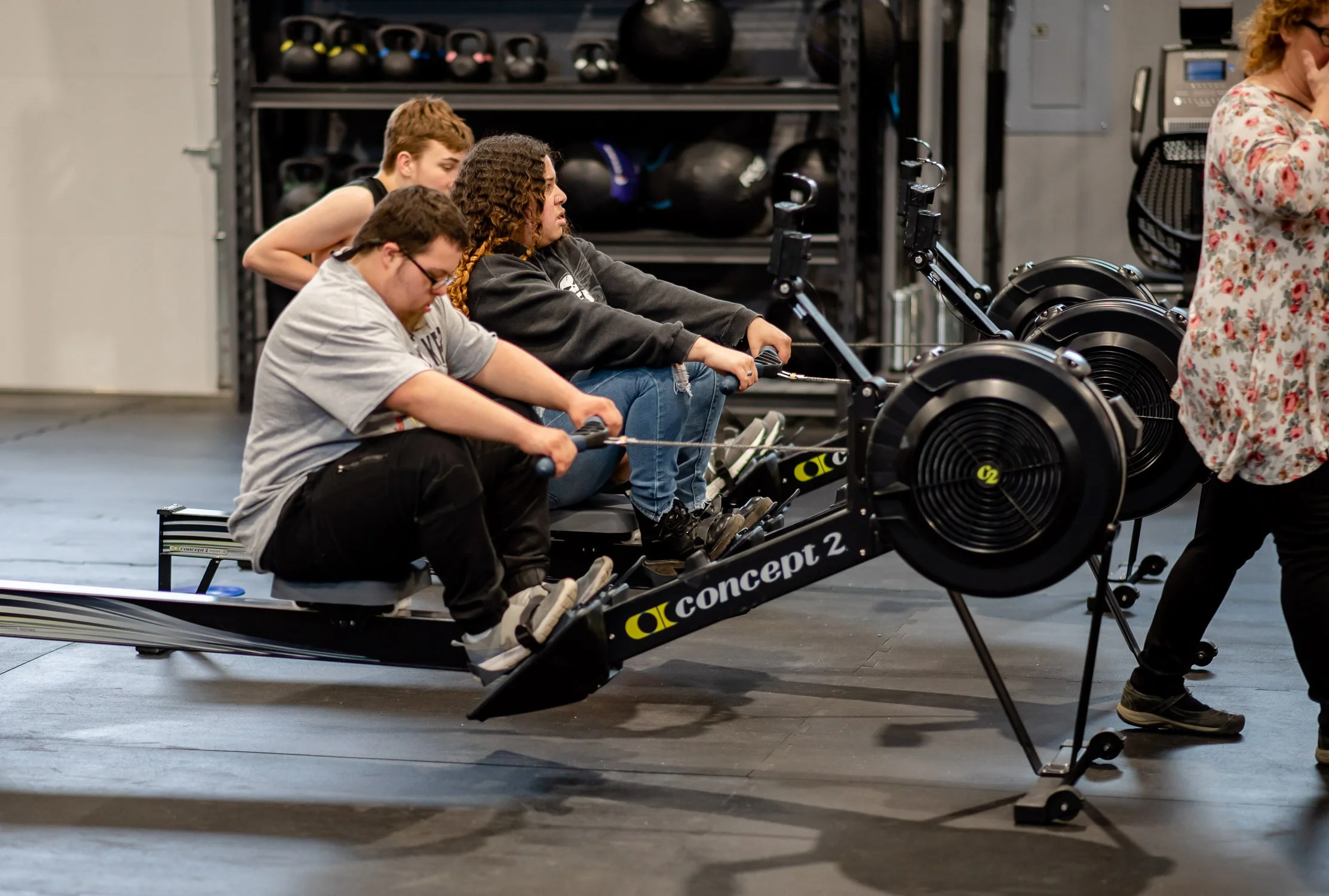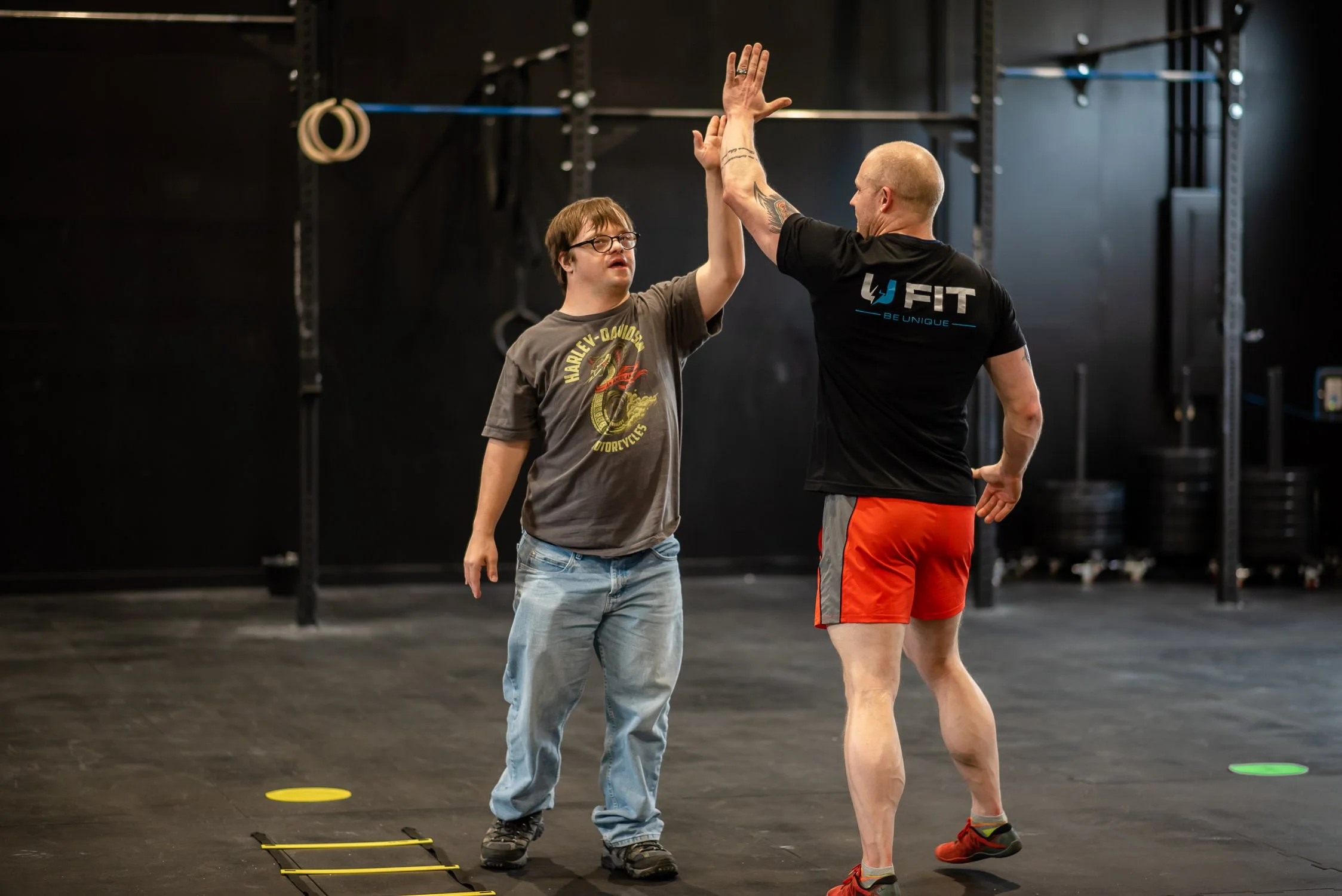Kelli Bult
“We are very fortunate to be in a position to be able to create UCAN and have the knowledge and drive to run it. UCAN is a passion project with the intention of giving back to our special needs community, not making money.”
---Kelli Bult, Founder of UCAN
For Kelli Bult, of Sandpoint, Idaho, this passion originates from her son Caleb. Caleb, age 7, was born missing dozens of genes. He will need assistance and care his entire life. Kelli’s decision to quit her job as a senior executive at Mack Trucks to care for Caleb proved tremendously difficult for both her and her husband, Jacob. It meant lost income, lost career opportunities, and lost ambitions.
“I was kind of lost after I quit my job, . . . trying to stay home with the kids. I just wasn’t good at being a stay-at-home mom,” she reflects. “I felt like I was the worst mom when I was at home, so I needed something where I had the flexibility to help my kids, especially Caleb, and be there to spend a ton of time with them, but also feel fulfilled professionally.”
The Unique Center for Athletes of all Needs (UCAN) gym, which opened its doors this year at 1007 W. Superior Street in Sandpoint, afforded Kelli the opportunity to feel fulfilled, both personally and professionally, in ways that weren’t possible as either a corporate executive or a stay-at-home mom. Even more importantly, the gym enabled her to use her many talents to fill a community void. “At the gym, I am still with my kids just as much,” Kelli notes, and I am pursuing a passion that helps my son and my community.”
Caleb Bult was born in 2015. Kelli was 30 weeks pregnant when her water broke while she and Jacob were attending a wedding in Chicago. She observed, in retrospect, that “it was a blessing though . . . we could get to a hospital that was one of the number-one neo-natal hospitals.”
Kelli spent seven days at the University of Chicago Medical Center, still pregnant but after her water broke, so that doctors were able to use methods to speed up caleb’s development, such as steroids for lung development and magnesium for brain development. . Kelli and Jacob had no idea Caleb had any issues prior to her hospitalization. His condition became known only after the medical team in Chicago discovered that Kelli’s baby had a type of micro-chromosomal deletion after genetic testing was complete. Caleb is missing 79 genes.
For context, with Down’s syndrome, there is an additional copy of chromosome 21, resulting in three copies instead of the normal two copies. In Caleb’s case, he is missing 79 genes on the lower long arm (referred to as the “q arm” by geneticists) of chromosome 7. According to the National Center for Advancing Translational Sciences at the National Institutes of Health (NIH), this change does not happen because of anything anyone did before or during pregnancy. Furthermore, according to NIH, Caleb is so special that there is no name for this chromosomal deletion. The number of surviving children with this unique genetic DNA code is one: Caleb.
Make a donation.



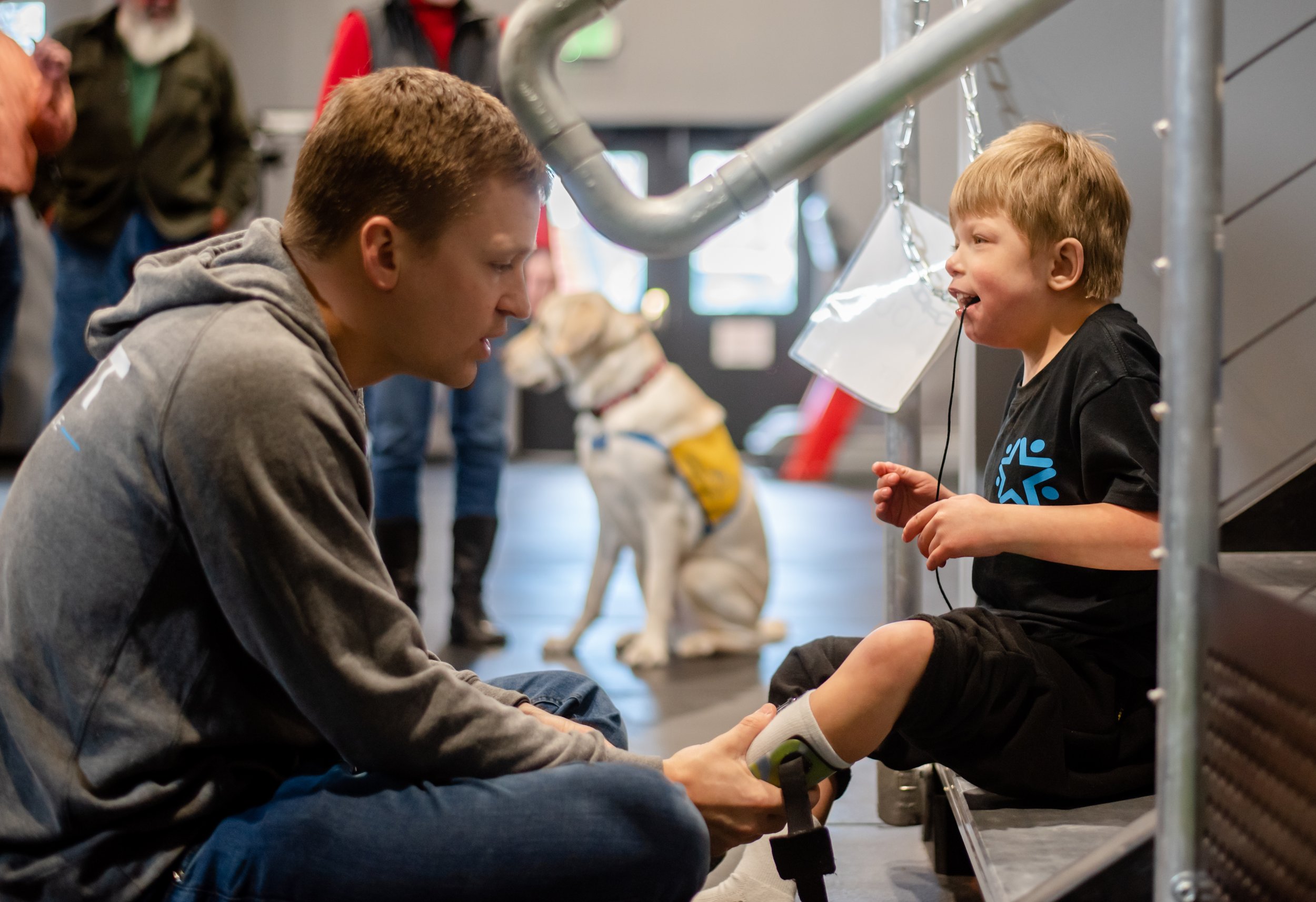

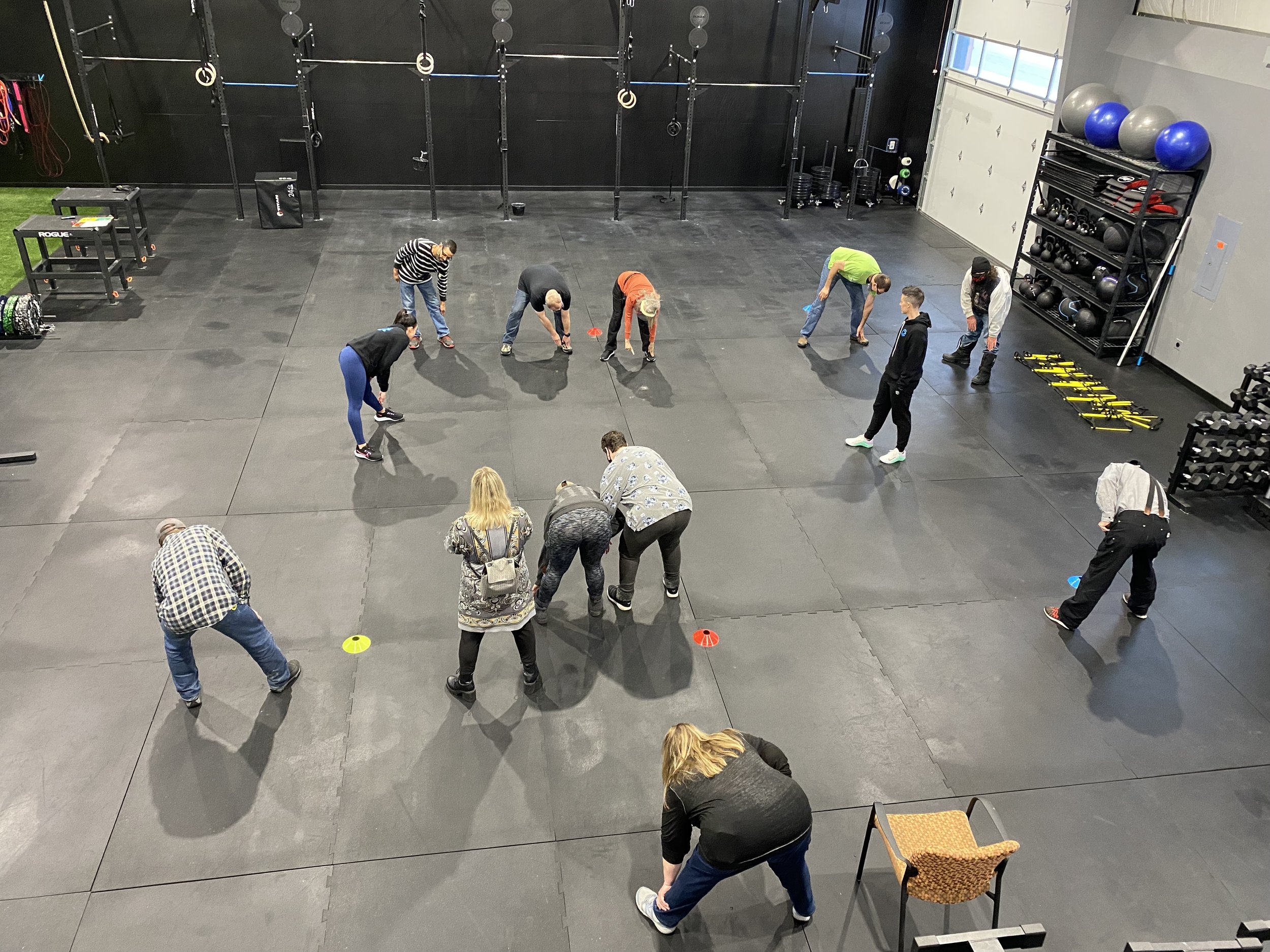
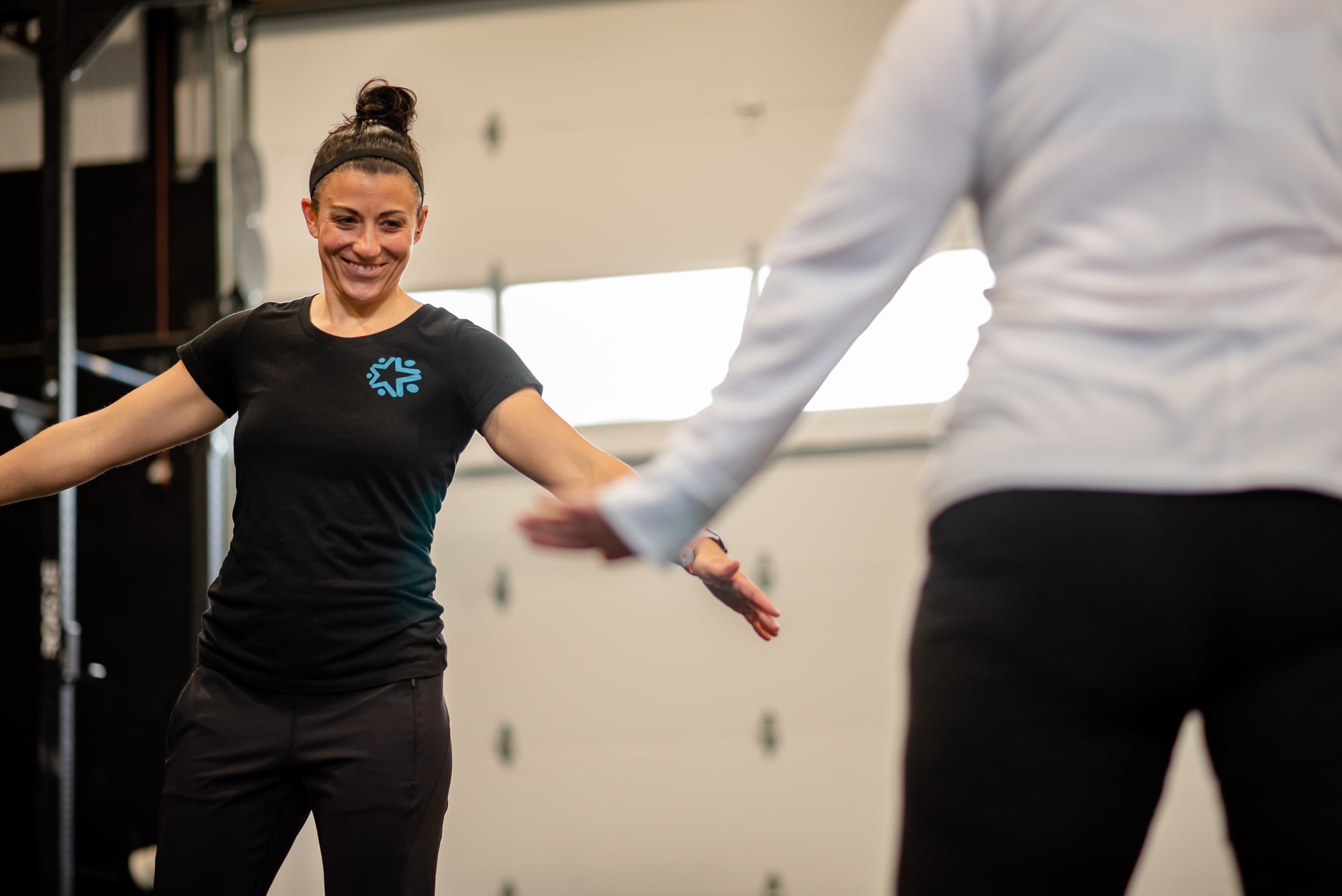
Make a donation.
100% of donations raised for Kelli will go directly to her in the form of a grant! Kelli will use the grant to provide free physical theroapies, nutrition support, fitness, behavioral support, and a close-knit community to those with special needs in Sandpoint and Bonner County. Check back to see the outcome of your donation.
Humans of Idaho raises funds for Idahoans to accomplish personal missions or professional goals. 100% of your donation goes to the featured Idahoan. And your donation is tax deductible.
Special Needs in Idaho
“Do we need to move because we have this child?
Can we really live in Sandpoint?”
After Caleb was born, Kelli and Jacob struggled with the decision to leave Sandpoint and Idaho, where they have lived for 9 years together, to relocate to a community with a stronger pediatric neurological and genetic medical system. “Do we need to move because we have this child?” Kelli asked herself. “Can we really live in Sandpoint?”
Sandpoint, a small, remote town in north Idaho, nestled below the Selkirk Mountains on the shores of Lake Pend Oreille, has no major hospital that offers a wide spectrum of specialty medical care. Known for outdoor activities such as skiing, mountain biking, hunting, rock climbing, and water sports, Sandpoint is a rural community with a vibrant art and beer-brewing collective that relies heavily on a tourism and service economy.
After researching pediatric care for disabled children in states like Illinois, Washington, Pennsylvania, and California, Kelli and Jacob discovered that Idaho takes excellent care of children under 18 with special needs. To Kelli’s surprise, “Idaho is really amazing with special needs.”
In fact, she learned that the state government has expansive and free special needs programs for young people under legal guardianship that sets it apart from other states. For example, Idaho state-funded and administered Infant Toddler Network brings social workers as well as physical, speech and behavioral therapists into the homes of families of children with special needs every week.
“They all came to our home. Wow!” Kelli recalls. “We didn't have to take him anywhere. The therapists and social workers used their tools in our house to teach us how to work with Caleb. It was amazing!.” Caleb was automatically enrolled into a social work program through his local pediatrician in Sandpoint.
Once Caleb turned 3, he graduated out of the Infant Toddler Network. Therapy visits moved to clinics, which required Kelli and Jacob to transport their child from appointment to appointment. Around this same time, Kelli and Jacob also welcomed their second son, Owen, who was born with no genetic deletions.
This is when Kelli made the difficult decision to leave her corporate executive job at Mack Trucks, enabling her to discover and unleash a passion that could combine her ambition and drive with being a mother of two boys, one with special needs. “I had to take him to 12 appointments a week, Kelli recalls, “and it was impossible to do and balance a demanding job.”
Make a donation.
Make a donation.
100% of donations raised for Kelli will go directly to her in the form of a grant! Kelli will use the grant to provide free physical therapies, nutrition support, fitness, behavioral support, and a close-knit community to those with special needs in Sandpoint and Bonner County. Check back to see the outcome of your donation.
Humans of Idaho raises funds for Idahoans to accomplish personal missions or professional goals. 100% of your donation goes to the featured Idahoan. And your donation is tax deductible.
Motivations of Life
“Caleb is my motivation. He drives a lot of my decisions. He drives a lot of my emotions. He drives a lot of my thought process.”
Kelli, age 38, went to college at Washington State University in Pullman, Wash., to become a mechanical engineer. “I loved my job,” she says. “I had a passion when i was young for cars and I went to college because of that passion.” She researched what she wanted and then went to work doing exactly that. Her engineering career provided opportunities to travel and live throughout the country. “I was doing exactly what I dreamed,” she remembers fondly
A career in engineering was fulfilling her dream. “The trucking business was my passion! If I hadn’t had a family,” she says, “I would've kept going, I would have kept climbing the corporate ladder. But your life takes you other places. If I could go back, I probably would someday because I did love it and do miss it.”
A career in the truck-manufacturing business as a female engineer not only offered adventure, but it also took courage and grit. “There were 150 people on my floor and maybe two of them were women who were actual engineers,” she explains. “There are plenty of women in marketing, PR, and all of that, but on the engineering side, there were two of us, and we were both really young.
“I didn't want to be that person who quit their job to be a stay-at-home mom,” she adds. “I wanted to keep going and show them that I can have two kids and I can have the corporate executive job too. That was a big thing for me. I think that was one of the hardest things to get over when I made that decision.”
As an ambitious and driven human, Kelli embraced the experiences. “I had so much passion for it that I just soaked it up,” she says. “I learned a lot outside of work. I've read a lot. I tried to be knowledgeable.” This same drive and ambition are clearly evident with the gym Kelli envisioned a few years after Caleb was born.
“Everything kind of happened at 4 for Caleb,” Kelli recalls. “Before that, it was very tough because you want your kid to talk to you, to play with you, but he wasn’t able. And then at 4, he did! He really progressed quickly from that point forward.”
“He got to where he was walking with a walker and then he was walking by himself,” she adds “He was talking more, maybe a hundred words. But then, at about age five and a half, Caleb developed epilepsy, and that's where he actually went backwards. That was another driving force for the gym.”
Motivated by her self-drive and inspired by Caleb, Kelli founded and now operates the Unique Center for Athletes of all Needs (UCAN) in Sandpoint to help humans with special needs of all ages: children and adults. UCAN (www.ucansandpoint.org) provides a safe and supportive environment for people with special needs to build physical, emotional, and behavioral strength. It offers a bond to those with special needs and offers opportunities free of charge for people to learn about fitness, nutrition, and community.
Make a donation.
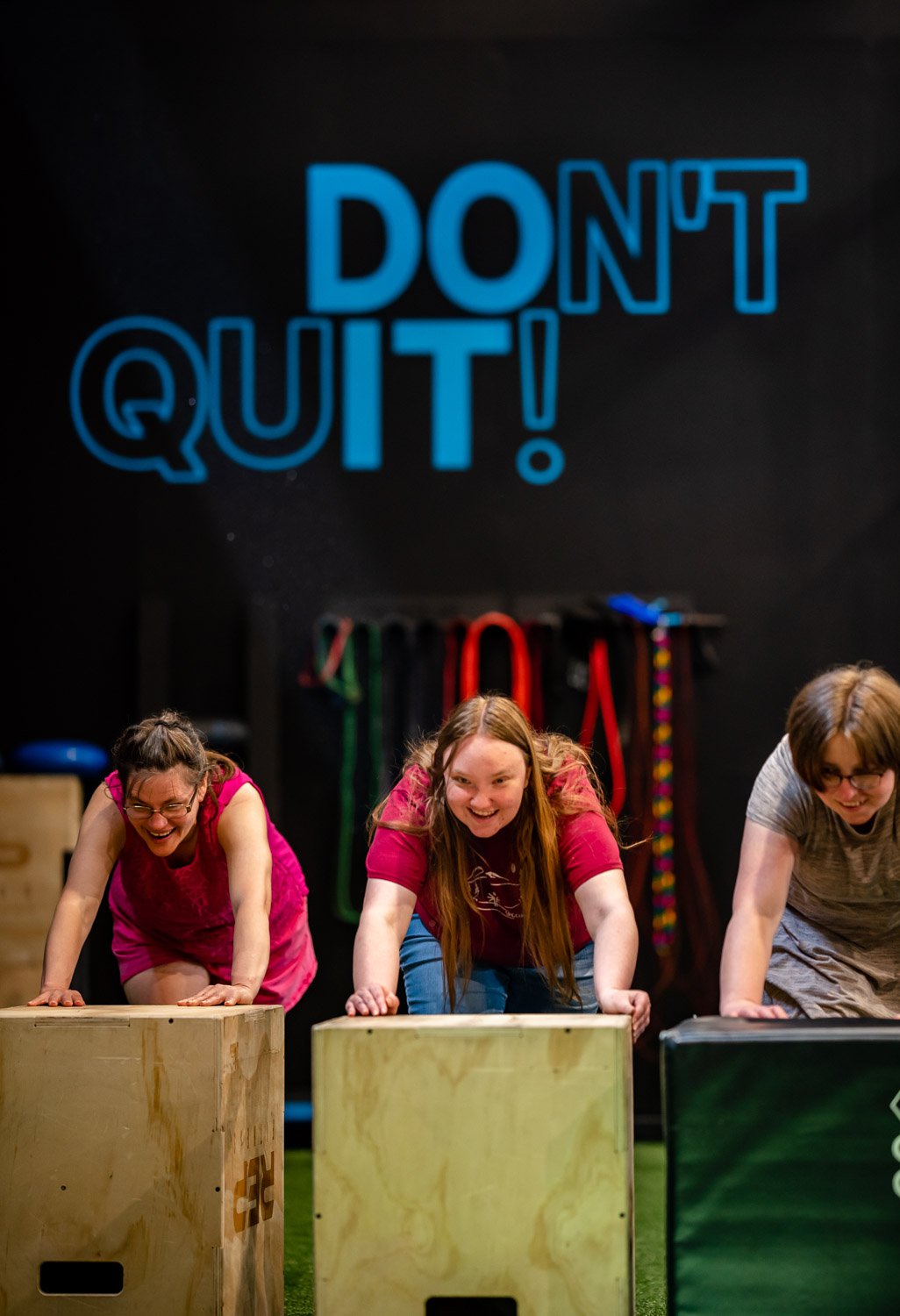
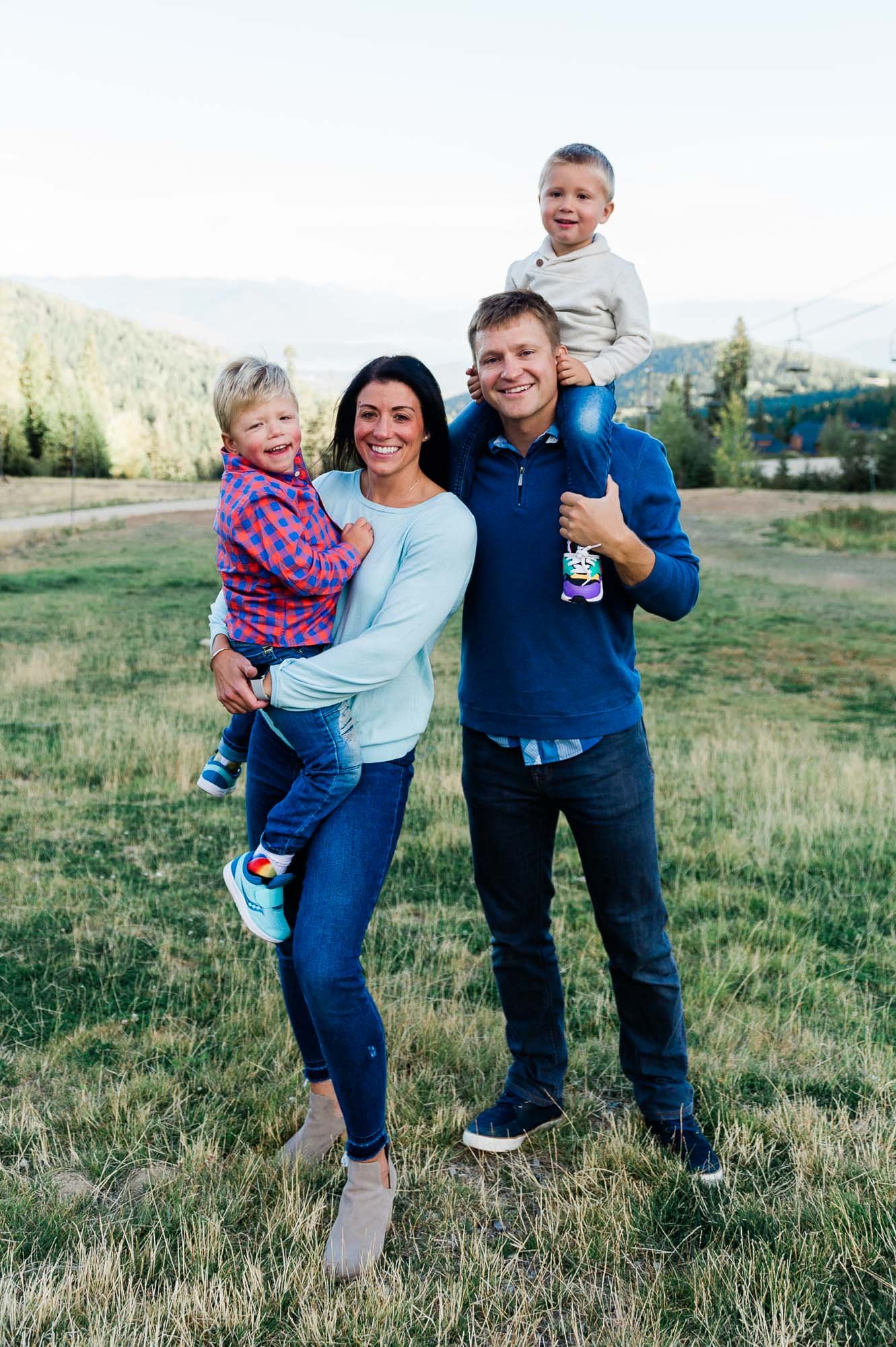
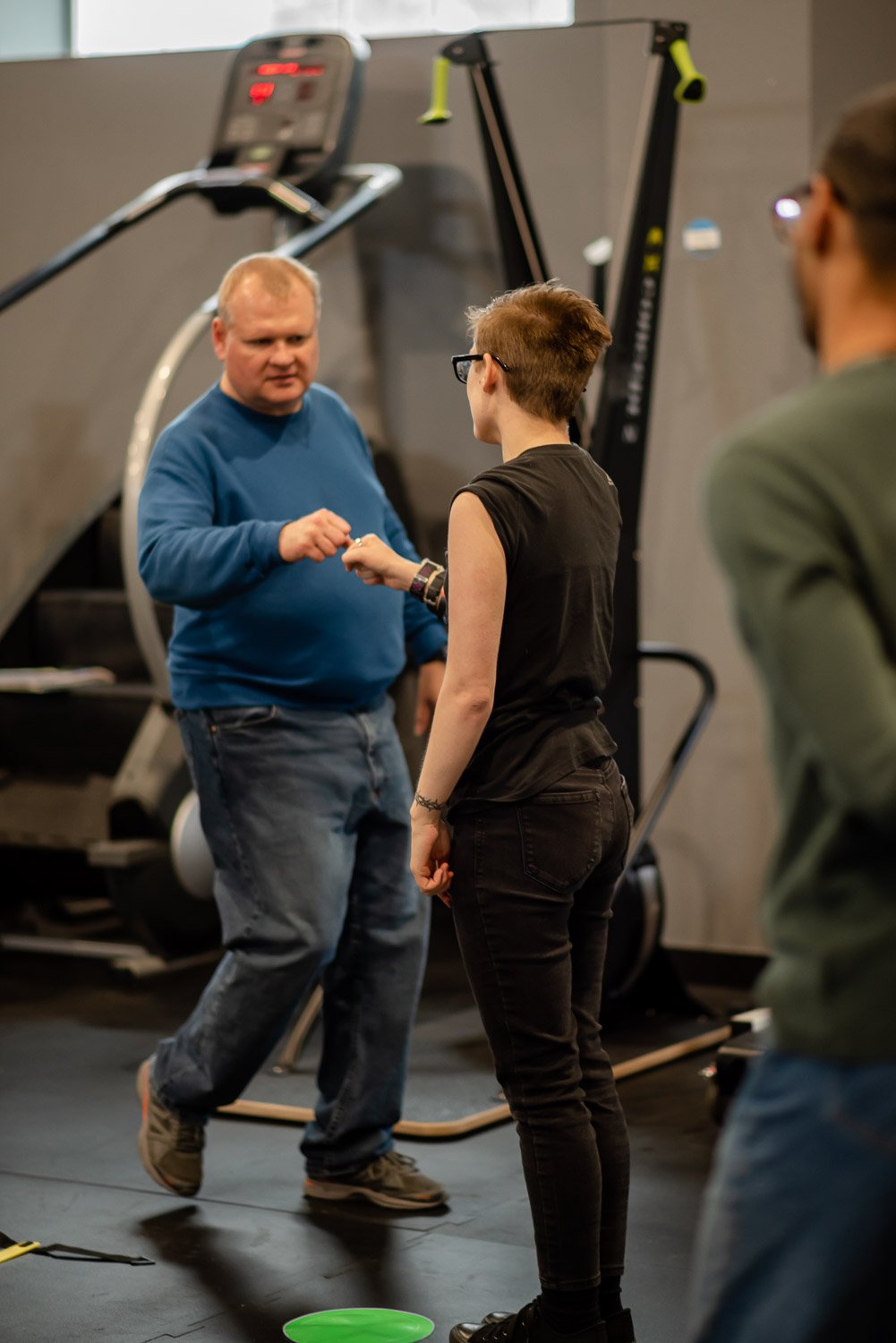
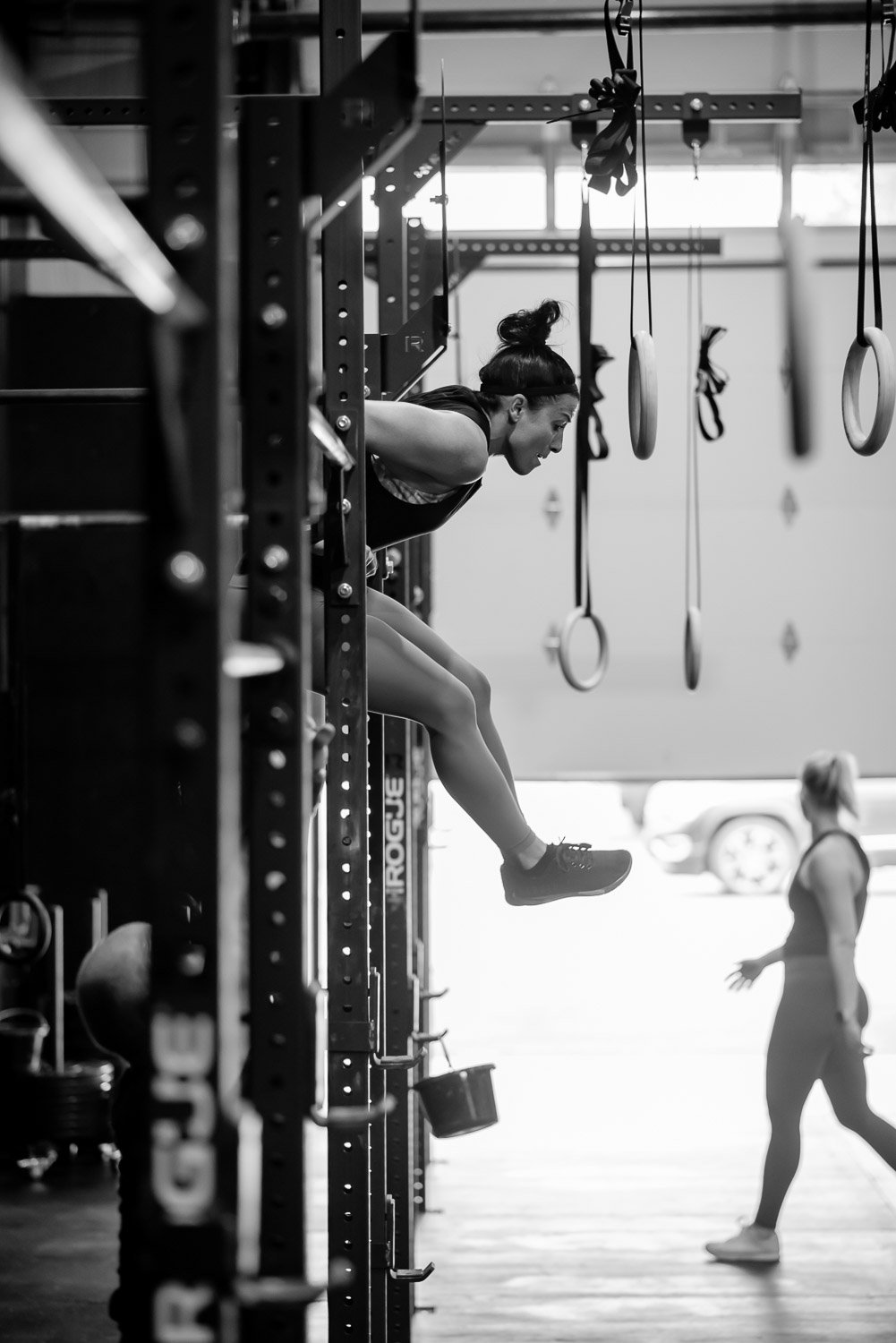
A Selfless Community
“There are two things that keep me wanting to stay in Sandpoint. The people and the beauty.”
Sandpoint and Idaho offer two attributes that Kelli appreciates: its people and the beauty. “I've interacted with so many different types of people . . . don't get me wrong,” she says. “We have some people that aren't great, which is why we make the news so much, but there are far more people who are amazing.”
Idaho has its share of admirable resources, but Kelli maintains that one of its often-underappreciated assets can be seen every day in the many people who give back to their community.
“It’s the giving side of life,” she says.
“There are a lot more selfless people here in Sandpoint and Idaho,” says Kelli, who has also lived in Arizona, Pennsylvania, and Washington State. “There are pros and cons to everything, but I would say that what keeps you living here in Sandpoint and Idaho is the community, the climate, the beauty. It is just a beautiful state.”
Kelli believes that the extreme elements of thought and culture in Sandpoint and in Idaho tend to attract the most media attention.
“The people living here in Sandpoint are great people who have moderate views on politics, sports, whatever,” she says. “The news tends to emphasize the situations that aren’t on the neutral or moderate side of things. So, our home gets a bad rap.”
Many perceive Sandpoint and Idaho as a haven of white supremacy, off-the-grid extremism, and end-of-times doomsday conspiracies. In Kelli’s mind, those misplaced labels don’t represent and illuminate the core, essence, and character of Idahoans.
Instead, to be Idahoan is to be independent, but equally to be selfless and part of a community. It’s the bond that holds people together, that is, to support one another in times of need and to celebrate in times of joy. This passion and value of community is part of what motivated and empowered Kelli to open UCAN.
UCAN is centrally located in Sandpoint on the site of a former lumber business, Trader’s Building Supply. Sandpoint was a lumber town throughout the Twentieth Century up until the 1990s when the timber industry staggered and never completely recovered. A fire tore through Trader’s in 2012. It was rebuilt but eventually the lumber yard closed, following the path of countless Idaho lumber businesses throughout Idaho and the Pacific Northwest.
Kelli saw this property as an ideal site for building a special-needs gym for the community as well as to support Caleb by bringing many of his therapies to a central location. The founding of UCAN truly was the product of Kelli’s passion and vision.
“I have two kids and I have one kid that is going to need help for the rest of his life,” she says. So, let's be real. I'm in this for the long haul, I'm going to have Caleb with me for the rest of his life.”
Kelli is not alone. According to Kaniksu Community Health, a local non-profit healthcare provider, more than 200 other families in the Sandpoint area include children with special needs. UCAN supports these families in addition to about 75 adults with special needs who receive therapies and services. Adults with special needs have aged out of government programs so activities offered by UCAN are often the only support these adults can find or afford.
UCAN offers those with special needs access to a community, safe environment, and the opportunity to get out of the house and socialize. People with special needs tend not to leave their homes because it can be difficult to travel but also because of the taboos and reactions from “normal” people. But Sandpoint is special, Kelli says.
“It's amazing, this town, I assumed kids would be mean.” she reflects. “I don't want my kid to go to school and get made fun of, and it's completely the opposite here. I have Caleb in first grade and he's in GenEd part time this year.”
“So, he is with typical kids for a portion of the day, and I’ll tell you what, I took that kid to Lost in the ‘50s this year, and he’s famous!” Kelli says. “I walked around in town with him in a stroller, and multiple kids yelled, ‘Caleb!’ ‘Hey, Caleb, what’s up!’ Like 13 and 14-year-olds too. I mean, how do those kids even know him?” The students around Caleb have taken the initiative to get to know him. Sandpoint and Idaho offer Kelli and Jacob a supportive community in which to raise a child with special needs. All the children at Farmin Stidwell have taken to Caleb and been kind, not scared of him, which is all I can ask for as a mother.
“When a special-needs person is not their own guardian, they have amazing care here in Idaho and they're looked after,” Kelli says, “But once they are on their own…they're simply ‘on their own.’” UCAN offers children and adults free physical, exercise, and nutritional therapies. The gym also provides a central hub of activities where people with special needs, parents and therapists can converge, communicate, laugh, cry, learn, and heal.
“I feel more a part of something now than I did before,” Kelli notes. “I'm ready to dedicate time to my family, raise my kids, and make them the best they can be. All while also helping other parents and members of our community that share the same fears, issues and road blocks.
“I wouldn't have had any of the opportunities that have come up without my family,” she adds. “ I think that everything happens for a reason.”
Make a donation.
------------------------------------------------------------------------------------------------------------
One-hundred percent of contributions raised through Humans of Idaho over the next 30 days will go directly to UCAN to support the Sandpoint and Bonner County special-needs community.
Please donate today!
You can support UCAN and the humans who make up this beautiful state of Idaho by making a tax-deductible (Tax ID: 88-0703378) contribution via Venmo or Paypal. Or mail a check to: Humans of Idaho, P.O. Box 1634, Sandpoint, ID 83864, USA.

